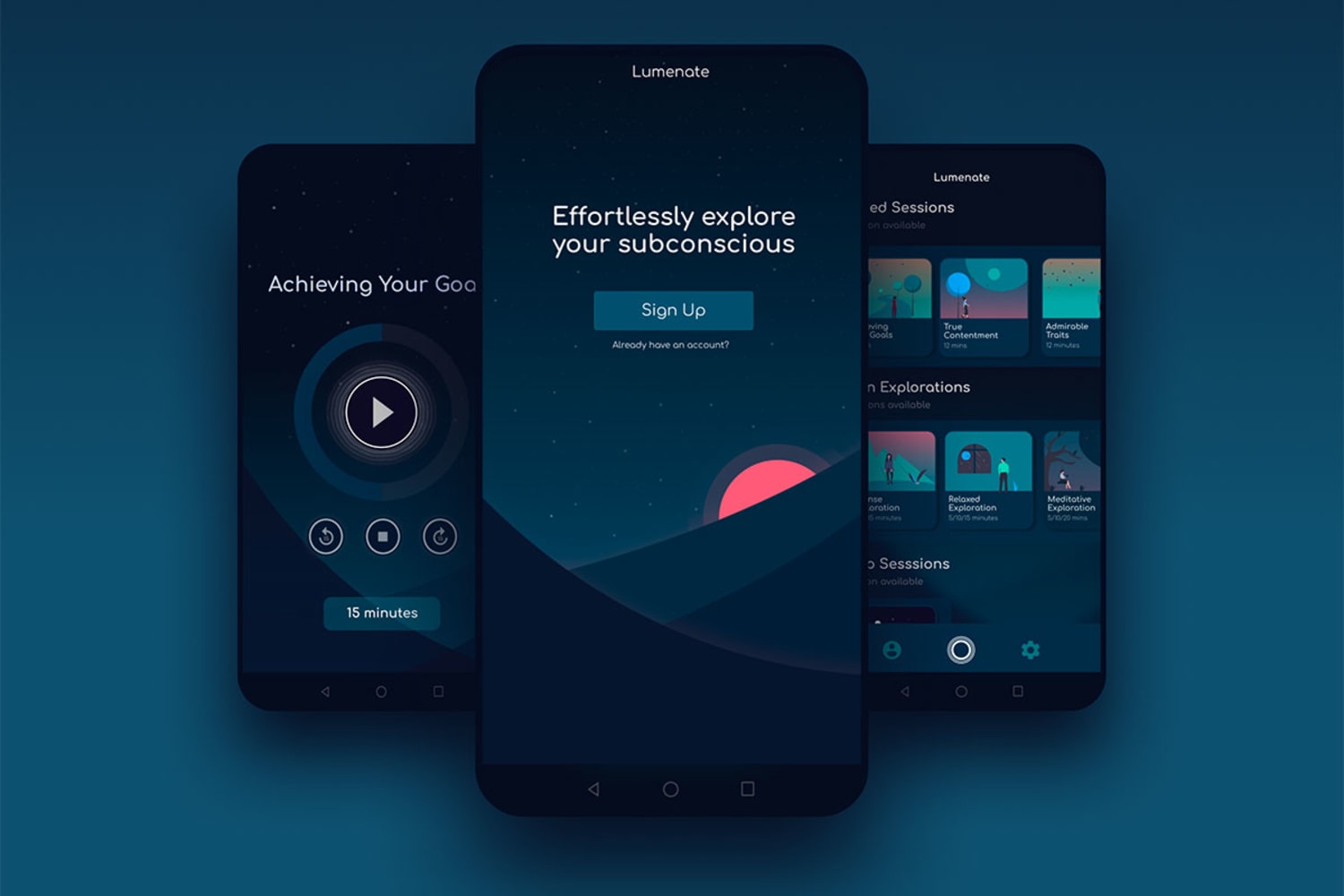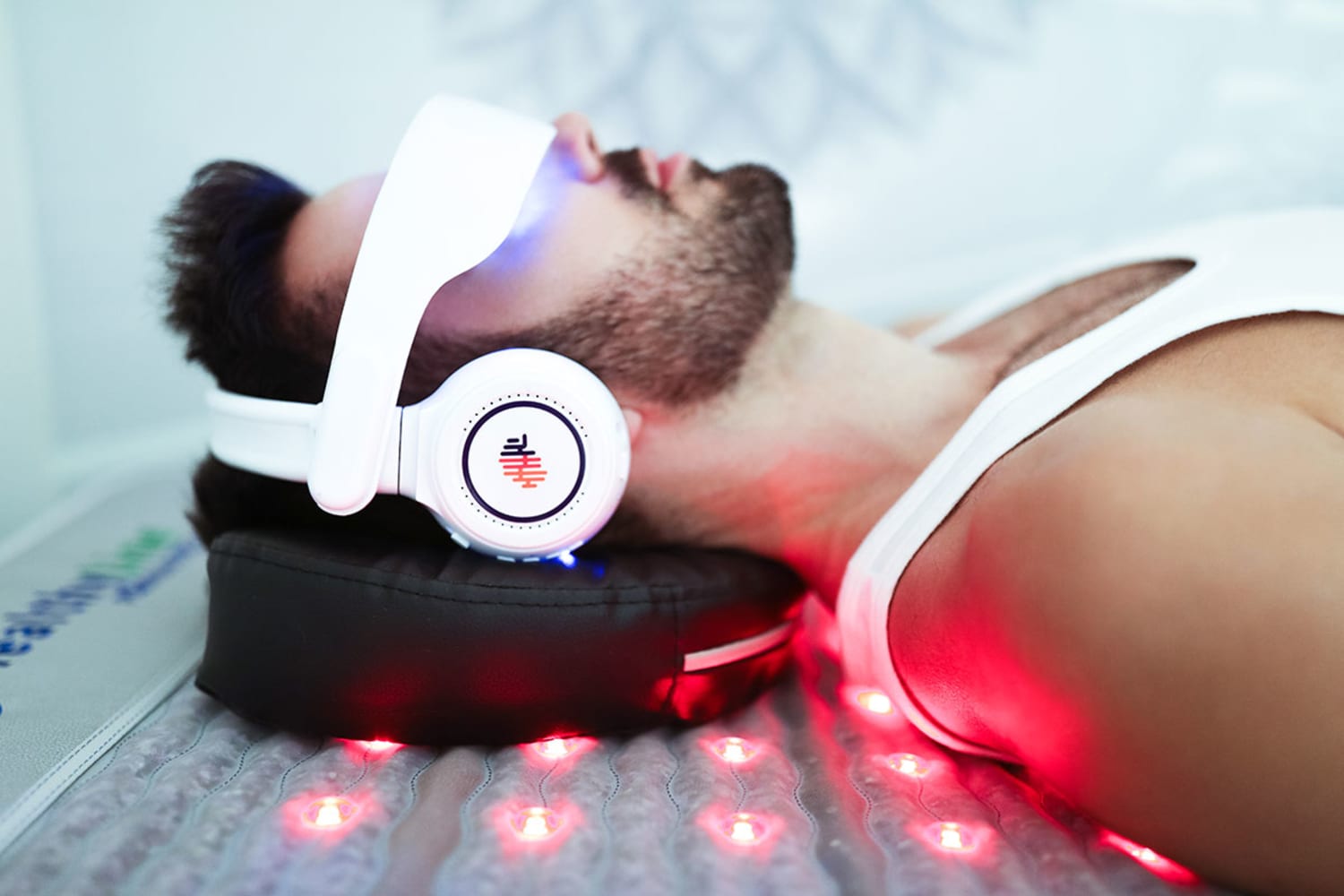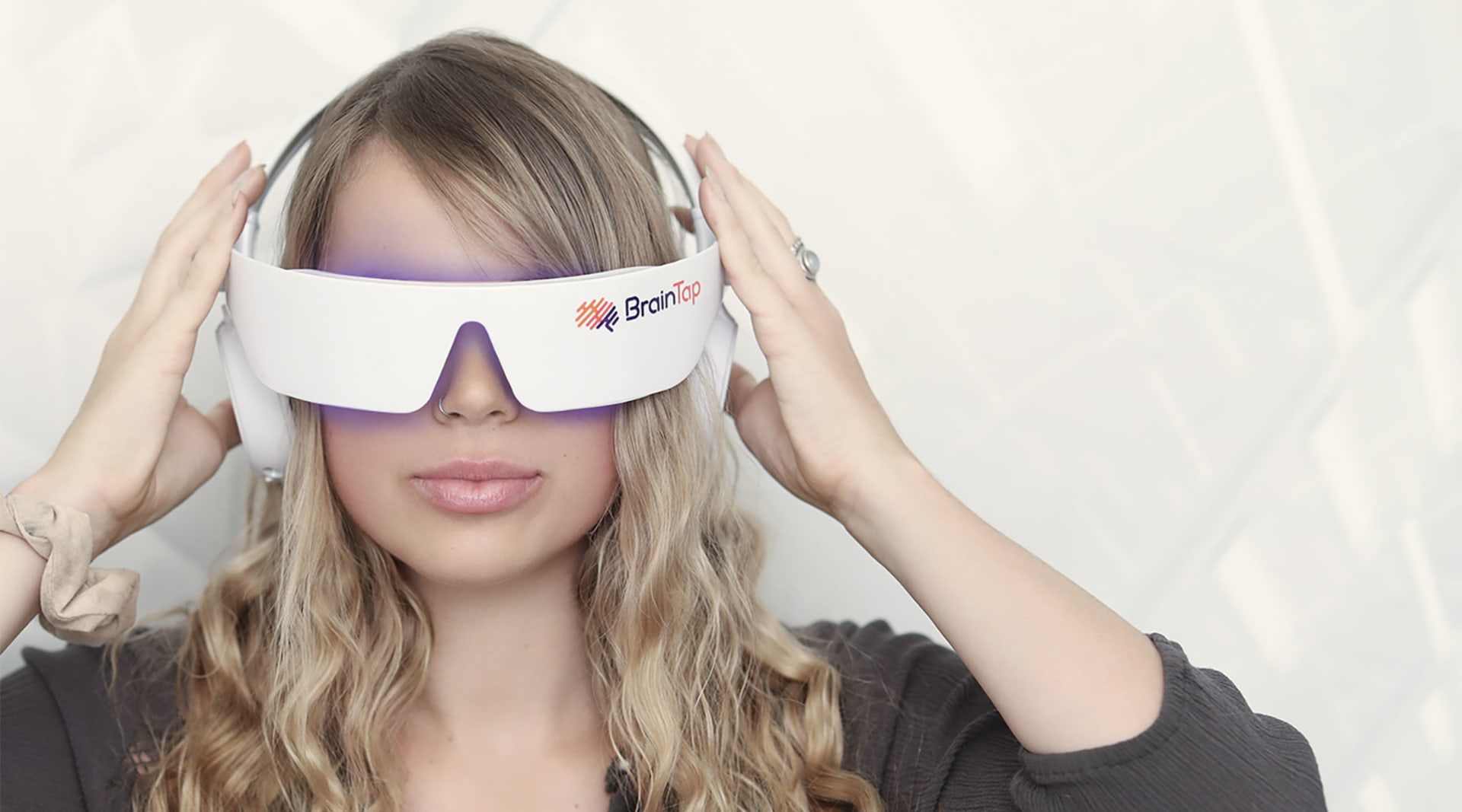The global mindfulness app market is set to grow to upwards of $4 billion by 2027, according to a report from ResearchAndMarkets.com. Downloads of apps like Calm and Headspace increased exponentially in the last year as people reached for their ever-more-present cell phones to soothe their pandemic-induced anxieties. The latest mindfulness apps are transforming devices into high-tech psychedelic tools on the journey to mental wellbeing.
Psychedelic tech meets meditation for the next generation of mindfulness apps.

With a mission to bring “impactful subconscious exploration” to the masses, UK-based start-up Lumenate utilizes smartphone technology to alter users’ mind states much in the same way as psychedelic drugs do. Launched in March 2021, the app works with the phone’s flashlight to create a maximized user experience: a stroboscopic light and dedicated audio tracks guide the mind through a “subconscious voyage.” The experience helps users explore their subconscious thoughts and feelings. Actress Rosamind Pike, who came on as creative director in February, described it as “a gateway into pure consciousness.”

Also tapping into smartphone features, the Vancouver-based chiropractic clinic Neuro Lounge launched their new app BrainTap Pro in April 2021. Using light and sound, the app synchronizes brainwaves to a specific rhythm to retrain the nervous system and reach a deeper state of relaxation. According to the clinic, this altered state of consciousness helps relieve anxiety, improve focus and promote better sleep habits. While the Neuro Lounge uses this same technology for their in-person sessions at their clinic, the app allows patients to experience the benefits from the comfort of their own home.
In Australia, researchers at La Trobe University are developing new technology for helping people reach “relaxed alertness,” or an open, curious mindset. Using colorful moving images of spheres and music, Nuro allows users to enter a state of flow and is currently being trialed with early childhood educators and care professionals to see if it helps them approach difficult situations with more focus and calm.
Mindfulness and tech—once seen as polar opposites—are being realigned. No longer about simply quieting the brain for meditation, the next generation of mindfulness practices looks to tech to provide specific science-backed experiences to help users dive deeper into new states of consciousness.
Please provide your contact information to continue.
Related Content

VML Philippines Transforms KitKat into a Break-Time Signal for Small Businesses in Metro Manila

